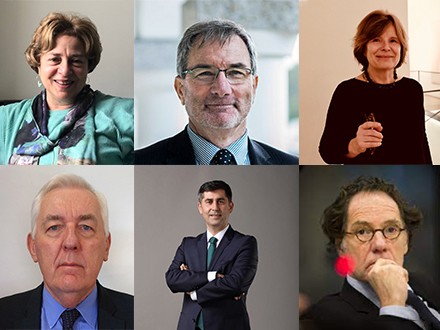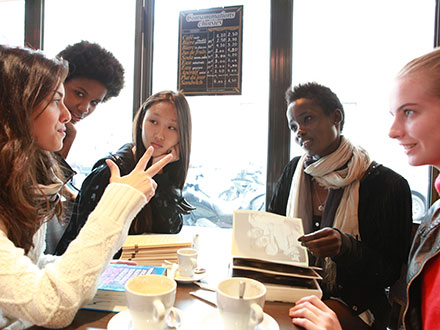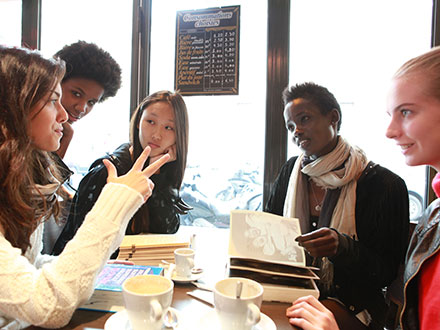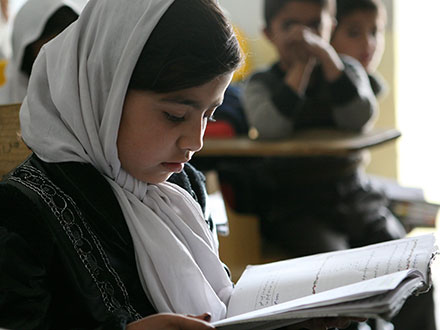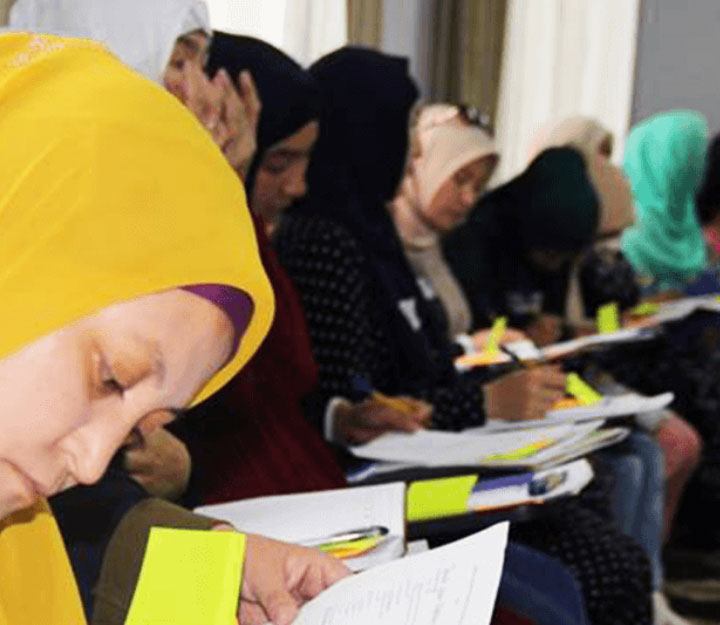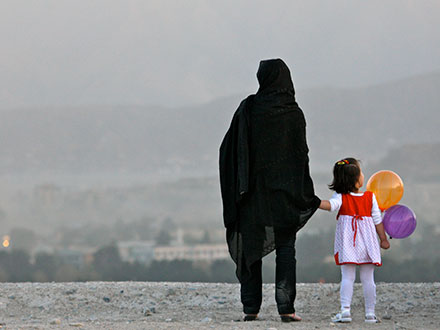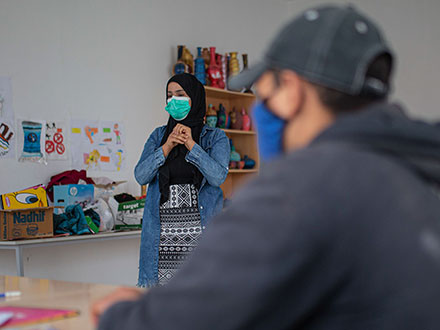Repatriation of foreign fighters, women, and children from Syria: Prosecution trends, rehabilitation efforts, and ongoing challenges in the Western Balkans
by Adrian Shtuni
The Western Balkans have taken the lead in Europe in repatriating their citizens from Syrian internally displaced persons (IDP) camps and prisons. By doing so, the region’s governments have acknowledged their shared security responsibilities and have taken concrete steps to meet them.
This proactive approach is deserving of praise especially considering the political resistance commonly associated with this issue. Although crucial, repatriation is only the first step in a long journey ahead for returnees’ rehabilitation and reintegration into society. Despite limited resources and tools, some promising efforts have already been rolled out.
The outbreak of the COVID-19 pandemic and the resulting economic fallout have, however, disrupted these efforts. Against this challenging backdrop, continued international assistance and capacity building efforts are critical not only for shoring up initial rehabilitation and reintegration achievements but also for preventing violent extremists in returning countries from exploiting the returnees’ vulnerabilities in times of increased uncertainty.
The Humanitarian and Security Issue
After the fall of Baghouz in March 2019, Kurdish-led forces detained thousands of foreign citizens with links to Daesh in north-east Syria. As of November 2020, most of these foreign nationals from some 50 countries – largely minors – remain in prisons and IDP camps, in precarious conditions worsened by the COVID-19 pandemic and with no clear understanding of what will happen with them. The reluctance of most countries to evacuate them persists despite frequent calls from the United Nations on Member States to take responsibility for their citizens. Technical, diplomatic, security, and legal issues are the most frequently cited reasons for not repatriating. Yet, political considerations must also not be discounted. Some countries have moved to either strip the citizenship of dual nationals who joined Daesh or fast-track legislation to allow this practice.[1] In some cases, especially in countries that have experienced Daesh-linked terrorist attacks recently, public opinion polls have indicated that repatriation is not a popular proposition.[2]
Despite objective difficulties and concerns, the deteriorating humanitarian and security situation in these IDP camps and prisons has made it increasingly clear that the status quo is untenable. Kurdish authorities of the Autonomous Administration of North and East Syria have repeatedly warned that they are unable to detain these foreign nationals indefinitely. Taking advantage of security lapses, dozens of detained individuals assisted by smuggling networks have escaped the camps.[3] This is a critical security concern. Besides, it is all but certain that the longer the children are detained in these camps the higher the chances they could become influenced by radicalization, making their eventual rehabilitation and reintegration harder. As such, coordinated repatriation of detained nationals from Syria without further delay would be the most pragmatic approach from a long-term security perspective.
Repatriation and Prosecution Trends
The Western Balkans countries have taken a different path from most European neighbors. Kosovo in particular, as well as Bosnia and Herzegovina, North Macedonia, and Albania to some extent, are among the few countries to have adopted a proactive repatriation approach. In the past two years, they have voluntarily repatriated about 150 of their citizens from Syria and Iraq, primarily children and women but also 19 Daesh-linked male combatants. In so doing, they have taken responsible steps to fulfill their domestic and international obligations and address the security risks posed by their citizens.
First of all, they have complied with their respective national laws and fulfilled constitutional obligations to protect the rights of citizens. They have also acted in accordance with the international human rights law, the international humanitarian law, and specific legally binding international instruments such as the Convention on the Rights of the Child. In this regard, it is worth pointing out that despite not being a member of the United Nations or signatory to international laws and conventions, the young and modestly resourced state of Kosovo has shown remarkable maturity and a greater sense of responsibility than more politically consolidated and better-resourced U.N. member states.
As of November 2020, two-thirds of adults repatriated to the three Western Balkans countries from Syria have been investigated, tried, and convicted for terrorism offences.[4] A court in Kosovo alone has handed down sentences to 27 of the 32 repatriated women and three of the four repatriated men who pleaded guilty to terrorism-related charges. Likewise, a court in North Macedonia has handed down sentences to all seven Daesh-linked militants repatriated in 2018 and a court in Bosnia and Herzegovina has sentenced three of the eight Daesh-linked militants repatriated at the end of 2019 while the others are standing trial. By repatriating and putting their adult nationals associated with Daesh on trial these countries have taken important steps toward administering justice without delay in a transparent and effective way.
However, despite the high rate of prosecution, sentences handed down by the courts across the Western Balkans so far have generally been lenient compared to average prison terms in the European Union for similar crimes. They have mostly bordered on the minimum prison term provided for in the Criminal Codes of the respective countries. Concerning repatriated women, the sentences have been even more lenient. Convicted women have mostly received two-year suspended prison sentences, despite being found guilty of the same criminal offences as the men. This uniform sentencing practice is particularly unusual considering that suspended sentences are commonly pronounced for petty crimes rather than serious terrorism-related offences.
Also, court cases against repatriated Daesh-linked adults have not been successful so far in bringing to light war crimes committed in Syria and Iraq, particularly crimes committed against ethnic groups like the Yazidis. According to a report by the UN Commission of Inquiry on Syria, the Daesh systematically “sought to erase the Yazidis through killings, sexual slavery, enslavement, torture, and inhumane and degrading treatment.”[5] The repatriated Daesh-linked militants in the Western Balkans have been sentenced only for joining a terrorist group, although testimonies and/or documentary evidence that may implicate some of them in other crimes – for example in human trafficking and sexual slavery of Yazidis –appear to exist.[6],[7] Prosecuting these crimes, where admissible evidence is available, is not only a moral and legal responsibility for bringing justice to victims but also an obligation under U.N. Security Council resolutions 2178 and 2396.[8]
Rehabilitation and Reintegration Efforts
Besides prosecuting adult returnees, good initial steps have been taken across the region to put in place rehabilitation and reintegration frameworks and programs. Albania established a Coordination Center for CVE in late 2017 and has recently set up multidisciplinary teams that will provide psychosocial assistance to the five individuals repatriated in late October 2020 and dozen others expected to be repatriated in the near future.[9] North Macedonia has recently adopted a national plan that has received some positive reviews by experts in anticipation of the repatriation of some 40 citizens from Syria.[10]
Kosovo, the first Western Balkans’ country to repatriate a large number of citizens, has arguably made the most progress in developing the needed strategic framework, coordinating mechanisms, and relevant institutional infrastructure to address the rehabilitation and reintegration of repatriated individuals. The newly established Division for Prevention and Reintegration within Kosovo’s Ministry of Interior Affairs has been in charge of managing the rehabilitation and reintegration efforts lead by psychiatrists, social workers, and other first-line practitioners in coordination with law enforcement entities, families of returnees, and local government official.
Returnees have received psychiatric and psychosocial evaluations followed by recurrent individual consultations administered by a dedicated team of mental health practitioners. They have also been included in social assistance schemes and have received housing accommodation as needed. With support from intergovernmental organizations, most of the 32 repatriated women have received parenting training and have been enlisted in skills development programs, including sewing and cooking courses to enhance their employment options. Most of the 74 minors have received arts and games therapy to assist with issues of psychological trauma caused by their prolonged exposure to violence and destruction. They have also been involved in cultural and sports activities in preparation for their transition into the public educational environment.[11]
Although there has been no official reporting on the progress of rehabilitation and reintegration initiatives in Kosovo, feedback received by local practitioners suggests that initial efforts have yielded some promising results. Despite its modest resources and capacities relative to the volume of returnees, Kosovo with the support of international stakeholders has managed to put in place a comprehensive program that relies on a small but highly dedicated cohort of first-line practitioners.
Moving Forward
Despite encouraging rehabilitation and reintegration efforts in the Western Balkans, the outbreak of the COVID-19 pandemic and resulting social distancing measures have slowed down the implementation of rehabilitation and reintegration efforts. According to the International Monetary Fund, the economies of the region are projected to shrink by up to 7.5 percent in 2020. This will make the allocation of adequate financial resources to address the needs and risks associated with returnees even more challenging for these modestly resourced countries.
Yet, in times of increased uncertainty and socioeconomic hardship keeping a clear focus on preventing and countering violent extremism becomes even more important. Violent extremist organizations are particularly skilled at taking advantage of vulnerable people in uncertain situations. That is why, continued support will be key to keeping returnees on the path to rehabilitation and reintegration and receiving communities safer. Moreover, rehabilitation and reintegration efforts in these challenging circumstances may benefit from a more inclusive approach toward community-based organizations that despite being well-positioned to work with returnees remain an underutilized resource. Also, local government stakeholders and their capabilities may be more broadly integrated into rehabilitation and reintegration programs that benefit the long-term welfare and safety of their communities. Ultimately, in the context of the COVID-19 pandemic, continued international assistance and capacity building engagements will remain key for sustained rehabilitation and reintegration efforts in the Western Balkans.
References
[1] Méheut, Constant. “France Judges Dead Jihadists but Refuses to Repatriate the Living.” The New York Times. January 26, 2020. https://www.nytimes.com/2020/01/26/world/europe/france-ghost-trials-isis.html.
[2] “Les Français Approuvent Massivement Le Jugement Des Djihadistes Par L’Irak Et Ne Veulent Pas Voir Leurs Enfants Revenir.” February 28, 2019. Odoxa. http://www.odoxa.fr/sondage/djihadistes-francais-approuvent-massivement-jugement-lirak-ne-veulent-voir-leurs-enfants-revenir/.
[3] Sirwan Kajjo, Ezel Sahinkaya. “Recent Turkish Infiltration Raises Security Concerns at Syrian Camp.” Voice of America. August 3, 2020. https://www.voanews.com/extremism-watch/recent-turkish-infiltration-raises-security-concerns-syrian-camp.
[4] Shtuni, Adrian. “Prison Terms for Repatriated Islamic State Militants Suggest Lenient Treatment by West Balkan Courts.” Janes.com. September 10, 2020. https://www.janes.com/defence-news/news-detail/prison-terms-for-repatriated-islamic-state-militants-suggest-lenient-treatment-by-west-balkan-courts.
[5] “HCDH: UN Commission of Inquiry on Syria: ISIS Is Committing Genocide against the Yazidis.” HCDH | UN Commission of Inquiry on Syria: ISIS Is Committing Genocide against the Yazidis. June 16, 2016. https://www.ohchr.org/FR/HRBodies/HRC/Pages/NewsDetail.aspx?NewsID=20113&LangID=F.
[6] Issa, Philip. “‘She Said She’d Blow Herself up First’: Hope Dims on Yazidis.” AP NEWS. March 04, 2019. https://apnews.com/article/2058b75cd77d4ae4915bf048bdcaee63.
[7] Kuloglija, Nermina. “Osoba Na Snimku “podsjeća” Na Ibru Ćufurovića.” Detektor. September 05, 2019. https://detektor.ba/2019/09/04/osoba-na-snimku-karakteristikama-podsjeca-na-ibru-cufurovica/.
[8] The U.N. Security Council Resolutions 2178 (2014) and 2396 (2017) require Member States to develop and implement prosecution, rehabilitation and reintegration strategies for returning foreign terrorist fighters and to ensure that their domestic laws and regulations establish serious criminal offenses sufficient to provide the ability to prosecute and to penalize crimes related to foreign terrorist fighters in a manner duly reflecting the seriousness of the offense.
[9] A2 CNN. “Të Riatdhesuarit Nga Siria, Dervishi: Janë Ngritur Grupe Që Do Të Japin Asistencë Të çfarëdollojshme.” A2 CNN. October 30, 2020. https://a2news.com/2020/10/30/te-riatdhesuarit-nga-siria-dervishi-jane-ngritur-grupe-qe-do-te-japin-asistence-te-cfaredollojshme/.
[10] Rosand, Eric, Heidi Ellis, and Stevan Weine. “Repatriating ISIS Family Members: A North Macedonian Model?” Just Security. September 15, 2020. https://www.justsecurity.org/72420/repatriating-isis-family-members-a-north-macedonian-model/.
[11] Shtuni, A. (Forthcoming) Report on Kosovo’s efforts for the Rehabilitation and Reintegration of Minors and Women Repatriated from Syria.
About Hedayah's Blog Series
Hedayah publishes a monthly blog series covering a range of different topics related to counter violent extremism (CVE). These blogs highlight the latest trends and challenges faced by the CVE world and highlight topics that receive less attention in the international CVE space with a unique perspective.
The authors of the blog posts are Hedayah’s staff, Hedayah’s Fellows, and guest experts. The opinions expressed in the blogs are their own and not representative of Hedayah. We hope that these blogs will contribute to the conversation around CVE solutions, and push forward the quest for more research and innovation in the field.



